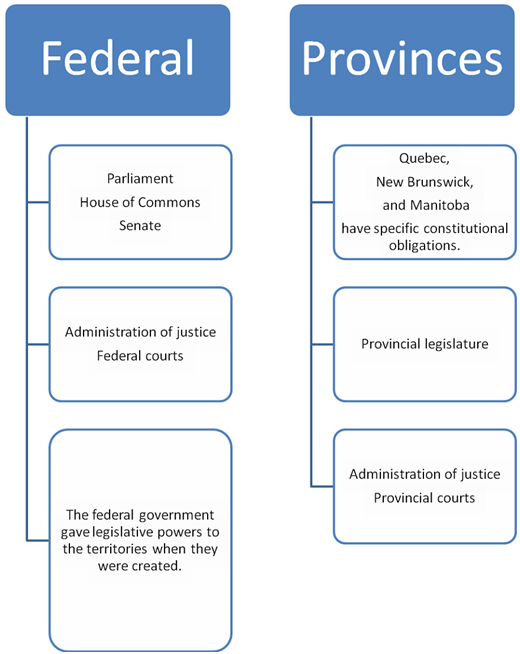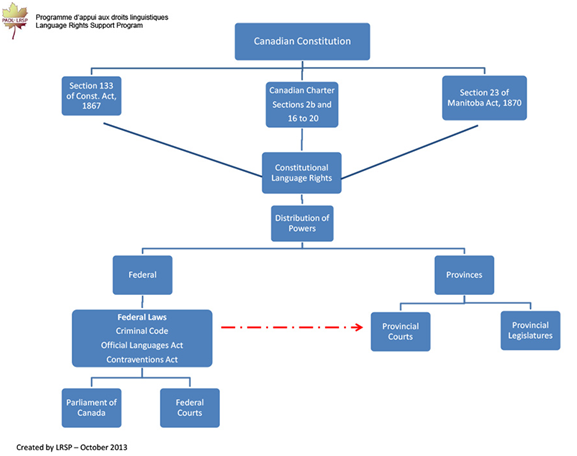Your right is enshrined in the Canadian Charter of Rights and Freedoms (Charter), the Constitution Act of 1867 and the Manitoba Act of 1870.
What is a judicial right?
A judicial right is one that pertains to activities in connection with trials.
The trial may be administrative, judicial or quasi-judicial (meaning that it is both administrative and judicial) in nature. Some rights may apply to all types of courts while others may apply only to judicial courts.
Constitutional language rights in the judiciary field are written in:
- Section 133 of the Constitution Act of 1867
- Section 23 of the Manitoba Act of 1870
- Section 19 of the Canadian Charter of Rights and Freedoms.
What constitutional documents guarantee judicial rights?
In 1867, Canada was created by theBritish North America Act, now known as the Constitution Act, 1867. Section 133 of this act guarantees rights in the legislative and judicial areas to Canadian citizens and inhabitants of Québec.
In 1870, the Manitoba Act gave legal status to the province of that name and guaranteed legislative and judicial language rights to its inhabitants.
Then, in 1982, the adoption of the Canadian Charter of Rights and Freedoms guaranteed a number of language rights to the Canadian public, to Canadian citizens as well as to official language communities as stated in Sections 16 to 23 of the Charter. Furthermore, the Charter guarantees constitutional language rights to New Brunswick inhabitants and official language communities in these four areas: legislative, judicial, education and communications and services
For more information, see this table on judicial rights.

